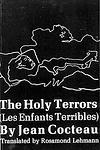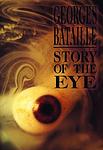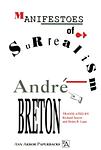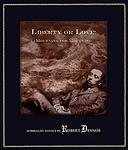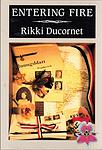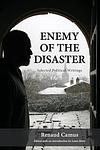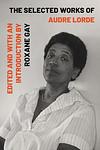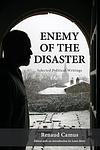The Greatest "France, Surrealism" Books of All Time
Click to learn how this list is calculated.
This list represents a comprehensive and trusted collection of the greatest books. Developed through a specialized algorithm, it brings together 300 'best of' book lists to form a definitive guide to the world's most acclaimed books. For those interested in how these books are chosen, additional details can be found on the rankings page.
Genres
The "France" category of books encompasses literature that is set in or about France, its culture, history, and people. This category includes works of fiction, non-fiction, memoirs, travelogues, and historical accounts that explore the rich and diverse aspects of French society, from its art, cuisine, and fashion to its politics, economy, and social issues. The books in this category offer readers a glimpse into the unique and fascinating world of France, its people, and its way of life.
Surrealism is a genre of literature that explores the subconscious mind and the irrational aspects of human experience. It often features dreamlike imagery, unexpected juxtapositions, and a sense of the uncanny. Surrealist literature seeks to challenge conventional thinking and push the boundaries of reality, often blurring the lines between fantasy and reality. It is a genre that celebrates the power of the imagination and encourages readers to question their perceptions of the world around them.
Countries
Date Range
Reading Statistics
Click the button below to see how many of these books you've read!
Download
If you're interested in downloading this list as a CSV file for use in a spreadsheet application, you can easily do so by clicking the button below. Please note that to ensure a manageable file size and faster download, the CSV will include details for only the first 500 books.
Download-
1. Hopscotch by Julio Cortázar
This avant-garde novel invites readers into a non-linear narrative that can be read in two different orders, following the life of Horacio Oliveira, an Argentine intellectual living in Paris with his lover, La Maga. The story explores philosophical and metaphysical themes, delving into the nature of reality and the human condition, while also examining the struggles of intellectual and emotional life. The second part of the novel takes place in Buenos Aires, where Horacio returns after La Maga disappears, and where he grapples with his past, his identity, and his place in the world.
-
2. Nadja by André Breton
The novel is a surrealistic exploration of the narrator's relationship with a young woman named Nadja. As the narrator becomes infatuated with Nadja, their encounters become more and more dreamlike. The book delves into the nature of reality and the power of the subconscious mind, blurring the lines between dreams and reality. It is also a commentary on the socio-political climate of Paris in the early 20th century, showcasing the author's views on art, life, and love.
-
3. Story of the Eye by Georges Bataille
This novel is a provocative exploration of the dark side of human nature, featuring two teenage characters who engage in increasingly bizarre and violent sexual games. Their actions, driven by their obsession with eroticism and death, lead them into a world of perversion and madness. The narrative is filled with explicit sexual content and shocking imagery, reflecting the author's fascination with the transgressive and the taboo.
-
4. Les Enfants Terribles by Jean Cocteau
"Les Enfants Terribles" is a haunting tale of sibling love and rivalry. The story revolves around two siblings, Elisabeth and Paul, who create a private world of their own, isolated from the outside world, in a Parisian apartment. Their intense bond is both destructive and all-consuming, causing them to reject the outside world and its conventions. This results in a tragic ending, as their intense relationship leads to a series of unfortunate events, including heartbreak, manipulation, and ultimately, death.
-
5. Blue of Noon by Georges Bataille
"Blue of Noon" is a provocative novel set in 1930s Europe during the rise of fascism. The story follows the life of an Englishman living in Paris, who is embroiled in a self-destructive cycle of sexual escapades and political extremism. His journey takes him through various European cities, where he engages in debauchery and encounters the political turmoil of the time. The book explores themes of existentialism, nihilism, and the human condition, offering a dark and complex portrayal of a man's struggle with his inner demons and the chaotic world around him.
-
6. Surrealist Manifesto by André Breton
The Surrealist Manifesto is a groundbreaking work that introduces and defines the surrealist movement in literature and art. The book, written by the founder of the movement, presents the idea that the rational mind represses the power of the imagination, weighting it down with taboos. It argues that the world of dreams and the unconscious should be embraced to enhance creativity, leading to more complete and fulfilling human experience. The book also criticizes traditional societal structures and norms, advocating for revolution and freedom of thought.
-
7. Moravagine by Blaise Cendrars
The novel follows the adventures of an eccentric, violent, and mentally unstable protagonist who is released from an asylum by his psychiatrist. The pair embark on a chaotic journey across Europe and America, encountering a variety of strange and often dangerous situations. The narrative explores themes of insanity, violence, and the human condition, offering a dark and surreal critique of modern society.
-
8. Arcanum 17 by André Breton
"Arcanum 17" is a surrealist exploration of love, loss, and resurrection set amidst the backdrop of World War II. Drawing inspiration from the legend of Melusina, the author uses the symbolism of this mythic figure to discuss the role of women in society and the destructive nature of war. The narrative also delves into themes of renewal, rebirth, and the power of the feminine, all while using the surrealist style to blend reality and dream in a poetic and philosophical discourse.
-
9. Liberty Or Love! by Robert Desnos
"Liberty or Love!" is a surrealist novel that delves into the passionate and tumultuous affair between a fugitive named Monsieur Louis Aragon and a mysterious woman known only as "the Mourning Dove." Their intense and erotic relationship unfolds in a dreamlike narrative, blending elements of fantasy and reality. The novel challenges traditional notions of love and freedom, exploring the boundaries of desire and the constraints of societal norms. The author's poetic prose and vivid imagery reflect the surrealist movement's fascination with the subconscious and the liberation of the human spirit.
-
10. Dada Documents And Manifestoes by Robert Motherwell
"Dada Documents and Manifestoes" is a compilation that offers a comprehensive insight into the Dada movement, a pivotal early 20th-century cultural phenomenon that challenged traditional art forms and cultural norms. The book brings together essential manifestoes, writings, and documents from various Dada artists and thinkers, providing readers with a vivid portrayal of the movement's radical ideas and experimental approaches. Through these texts, the collection not only explores Dada's artistic and literary innovations but also delves into its profound influence on modern art and its critique of contemporary society, politics, and culture.
-
11. Entering Fire by Rikki Ducornet
"Entering Fire" is a dark, surreal exploration of the human psyche, set against the backdrop of 19th-century France. The story follows the life of a man obsessed with the bizarre and grotesque, as he delves into the world of sexual obsession, madness, and the grotesque. His journey takes him from the underbelly of Paris to the exotic landscapes of North Africa, as he seeks to understand the nature of desire and the limits of the human mind. The narrative is rich with historical detail and vivid, dreamlike imagery, creating a world that is at once fascinating and deeply disturbing.
-
12. Selected Writings by Guillaume Apollinaire
"Selected Writings" is a compilation of works by a pioneering figure in 20th-century literature, showcasing a diverse array of poetic and prose pieces that reflect the author's innovative approach to language and form. The collection spans the breadth of his career, featuring avant-garde poetry that breaks free from traditional structures, as well as narrative prose that blends surrealism with acute observations of modern life. The author's fascination with themes such as love, war, and the artistic struggle is evident throughout the anthology, which serves as a testament to his influence on the development of modernist literature and his role in bridging the gap between the artistic movements of his time.
-
13. Poems Of André Breton by André Breton
This collection is a compilation of works by a seminal figure in the surrealist movement, showcasing a series of poems that delve into the depths of the unconscious mind. The poems are characterized by their dreamlike imagery, unexpected juxtapositions, and free association, reflecting the author's revolutionary approach to literature. Through his verse, the poet seeks to liberate thought from rational constraints and explore the vast possibilities of human imagination, often blurring the lines between reality and dream, sanity and madness, in a quest to capture the essence of surrealist philosophy.
-
14. Selected Writings by Henri Michaux
"Selected Writings" is a compilation of works by a prominent 20th-century author known for his idiosyncratic and imaginative style that blends poetry, travelogue, and philosophical reflection. The collection showcases a range of the writer's experiments with language and thought, offering readers a glimpse into his unique literary universe. Through a mix of introspection and surreal exploration, the texts delve into the psyche, the nature of consciousness, and the human experience, often drawing on the author's own encounters with foreign cultures and his use of hallucinogenic substances to transcend the boundaries of reality. The anthology serves as a testament to the author's innovative approach to writing and his enduring influence on modern literature.
-
15. Seven Dada Manifestoes by Tristan Tzara
This book is a collection of manifestos that serve as a seminal document in the history of the Dada movement, an avant-garde art movement of the early 20th century. The texts within are a blend of satire, polemic, and absurdity, reflecting the movement's disdain for the norms of bourgeois culture and traditional aesthetics. The author, a key figure in Dadaism, uses these manifestos to challenge concepts of art, literature, and politics, advocating for chaos and spontaneity over logic and reason. The work is both a philosophical treatise and a call to arms, encouraging the reader to question the status quo and embrace the liberating power of nonconformity and irrationality.
-
16. Selected Works by Alfred Jarry
"Selected Works" by Alfred Jarry is a compilation of the most significant writings from a French author known for his pioneering work in the Absurdist and Surrealist movements. The collection showcases a range of Jarry's literary output, including plays, essays, and novels, with his most famous character, Père Ubu, often taking center stage. Jarry's work is characterized by its satirical edge, inventive language, and the subversion of traditional literary forms. His influence extends beyond literature into the realms of theatre and the visual arts, where his ideas have continued to resonate with avant-garde movements throughout the 20th century and beyond.
-
17. Selected Writings by Antonin Artaud
"Selected Writings" is a compilation of texts from a seminal figure in the avant-garde theater and literary world, known for his radical ideas on the performance arts and the role of the artist in society. This collection showcases the author's diverse literary output, including manifestos, plays, letters, and essays that delve into his Theatre of Cruelty concept, which sought to disrupt the complacency of the audience and challenge the boundaries of conventional theatre. The writings reflect his tumultuous life, marked by mental illness and profound philosophical inquiry, and his influential thoughts on the interplay between reality and illusion, the body and the psyche, and the potential of art to reveal the deepest truths of the human condition.
-
18. Blow Up And Other Stories by Julio Cortázar
This collection of short stories delves into the surreal and the everyday with a blend of the fantastic and the mundane, offering a window into the human condition through a series of innovative narratives. The stories challenge the boundaries of reality, exploring themes of existentialism, the nature of time, and the intricacies of human relationships. The author's unique style weaves together the ordinary with the extraordinary, creating a tapestry of experiences that prompt readers to question their perceptions of the world around them. Each tale invites introspection and analysis, making the collection a staple of magical realism and a profound exploration of the complexities of life.
-
19. Aurelia by Gérard de Nerval
"Aurelia" is a semi-autobiographical narrative blending reality with dreamlike visions, where the protagonist embarks on a profound and surreal journey through his psyche following a descent into madness. The work is a poignant exploration of the author's own experiences with mental illness, unrequited love, and existential anguish. It delves into themes of the supernatural, the occult, and the interplay between dreams and waking life, as the narrator seeks to reconcile his internal turmoil and find a deeper understanding of his soul and the universe. The narrative is rich with symbolic imagery and introspective passages that reflect the author's fascination with the mystical and his quest for spiritual transcendence.
-
20. Poems Of Bejamin Péret by Bejamin Péret
The collection "Poems of Benjamin Péret" offers a journey through the imaginative and often surreal landscape of one of the most original voices of the 20th-century avant-garde. Péret, a prominent figure in the Surrealist movement, weaves together dreamlike imagery, revolutionary fervor, and a playful yet biting wit to challenge conventional norms and explore the depths of the subconscious. His poetry is characterized by a free-flowing style that breaks from traditional forms, reflecting his commitment to artistic and personal liberty. This anthology captures the essence of Péret's work, showcasing his contributions to literature and his enduring influence on the realm of poetic expression.
-
21. Orpheus by Jean Cocteau
"Orpheus" is a modern retelling of the classic Greek myth, reimagined through the lens of a 20th-century setting. The story revolves around a poet who becomes obsessed with Death, personified as a mysterious and captivating princess. As he navigates a world where the boundaries between the mortal realm and the underworld blur, his love and artistic pursuits lead him into a surreal journey of passion, betrayal, and introspection. The narrative delves into themes of creativity, the destructive nature of love, and the quest for immortality through art, all while challenging the perceptions of reality and the supernatural.
Reading Statistics
Click the button below to see how many of these books you've read!
Download
If you're interested in downloading this list as a CSV file for use in a spreadsheet application, you can easily do so by clicking the button below. Please note that to ensure a manageable file size and faster download, the CSV will include details for only the first 500 books.
Download


